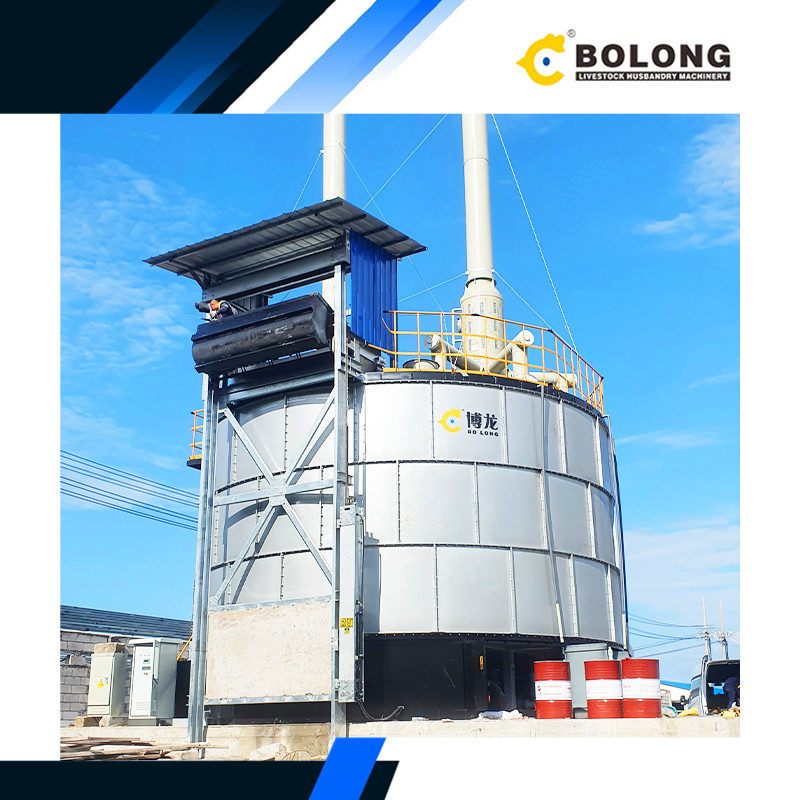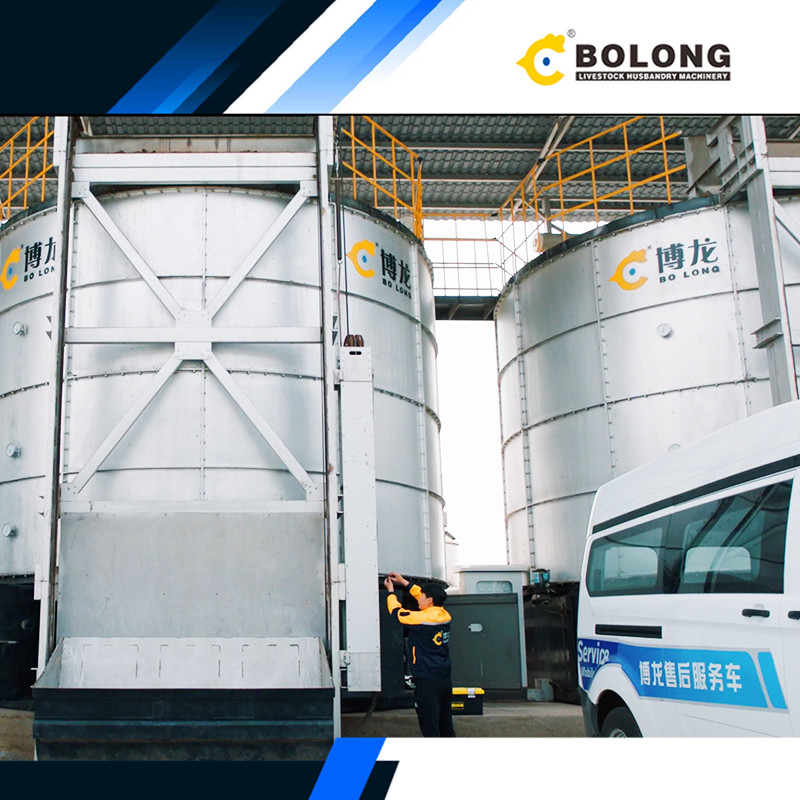12
2024
Agriculture is the foundation of development. There has always been a great demand for agricultural and livestock products around the world, and agriculture and animal husbandry have developed steadily. But there is always the problem of farm waste disposal. There are many ways to deal with farm waste. Composting, as an effective way to deal with farm waste, can not only reduce the environmental pollution of agricultural waste, but also significantly improve soil quality and promote plant health.

What is farm compost?
Farm compost is an organic fertilizer that is mixed and fermented with crop residues, livestock manure and other organic matters. It has rich nutritional value and has a significant effect on improving soil structure and increasing soil fertility. Here are some common on-farm composting methods:
1.The traditional composting methodmainly involves properly mixing farm waste and adding an appropriate amount of calcium hydroxide to promote fermentation, and turning the pile regularly to ensure evenfermentation, which takes about 3 months.
2.High-temperature composting method, select suitable raw materials such as straw, human and animal manure, etc. to make the moisture content reach 60-70%, seal the compost with soil or film to ensure high-temperature fermentation, and it can be decomposed in 1-2 months.
3.For anaerobic composting in a closed container, put the organic waste into the container and compact it, allowing anaerobic microorganisms to decompose the organic mattersunder anaerobic conditions, but be careful to open the container regularly to release excess gas.
Current status of farm compost
Farm compost has a great role in promoting farm development and plays an important role in modern agriculture. However, we understand from the above description that traditional composting methods take a long time and occupy a large area. Especially with the expansion of modern breeding and planting scale, long-term fermentation will greatly affect the production efficiency of the farm. Therefore, these composting methods can no longer meet the needs of operators, and it is urgent to improve composting efficiency.
How to improve farm composting efficiency?
1.Appropriate raw materials
Choose appropriate raw materials and organic waste suitable for fermentation. Organic waste from farms in different regions is not the same, so it is necessary to adapt to local conditions and choose appropriate raw materials to effectively ferment. At the same time, the composting materials should be cut into small pieces as much as possible to accelerate decomposition; the method of alternating dry and wet materials during stacking is used to help water and air penetration and promote microbial activity.
2.Adequate oxygen
To ensure that the interior is fully exposed to air during the fermentation process, and appropriate amount of oxygen can be added if necessary to ensure sufficient fermentation of the materials.
3.Appropriate humidity
Maintaining the appropriate humidity of the composting material is the key, usually between 50%-60% is the best. Too dry will inhibit microbial activity, and too wet may lead to anaerobic conditions, affecting the quality of composting.
4.Mechanical equipment assistance
The traditional composting method is no longer suitable for the development needs of modern agriculture. If conditions permit, the introduction of composting machinery can greatly improve the composting efficiency, such as a composting machine that handles a large amount of livestock and poultry manure. Under the above improved conditions, the Bolong hign- temperature aerobic fermentation tank can produce organic fertilizer in just seven days.
4.1 Processable raw materials
Bolong fermentation tanks are suitable for processing animal manure, livestock and poultry carcasses, kitchen waste, vegetables and fruits, sludge, mushrooms, crop straw, etc. It has a wide range of applications and can meet the needs of different farms.
4.2 Invention Patent-Heat Exchange System
Waste such as manures added to the tank requires a certain temperature and a certain proportion of water content for the biological fermentation process to proceed effectively. Under the premise that humidity cannot be guaranteed, the system needs to supply enough heat to evaporate water and increase the material temperature. The evaporation of water will take away heat, and direct discharge will cause the corresponding heat loss. For this reason, Bolong specially designed a heat exchange device. When the gas passes through the device, it is quickly condensed, which can further reduce emissions. At the same time, the heat is recycled to heat new air and enter the tank for recycling, achieving the purpose of energy saving and consumption reduction. The heat exchange device makes full use of the heat energy of the exhaust gas to heat the fresh air, and then transports it to the fermentation tank, avoiding the waste of electricity from continuous heating, and the waste heat is recycled to reduce energy consumption.

Conclusion
Using the fermentation tank to simulate the composting principle to treat farm waste can not only maximize the solution to the problem of agricultural waste treatment, but also convert it into high-quality organic fertilizer and realize the recycling of resources. At the same time, in the closed tank of the fermentation tank, the problem of difficult treatment of waste odor can be effectively solved. Through scientific design and meticulous management, Bolong fermentation tanks can maximize processing efficiency and bring both economic and environmental benefits to farms.
 English
English
 中文简体
中文简体